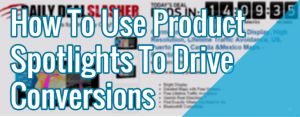— January 17, 2019

geralt / Pixabay
What’s your recruiting strategy? Today’s low unemployment rates have created strong competition between SMBs, leaving many to dig deeper into the pocketbook to offer higher compensation. However, successful recruiting takes more than money; it takes a compelling total rewards package that emphasizes benefits outside of compensation. Successfully developing such packages requires a strategic HR function that asks the right questions, knows employees and candidates well, and discovers the benefits that attract those individuals the most.
Owning Health Benefits
Healthcare in America has become a convoluted topic full of confusing regulations and rising premiums. Today, it can get very expensive for someone to cover their family with even the most basic packages. The burden of finding and putting together robust healthcare options falls on HR. When successful, this is a huge point of attraction for talent and a boost to recruiting, but it’s notoriously difficult or cost-prohibitive for a small or medium-sized business to provide such an enticing level of healthcare.
Generally, it’s easier for larger workforces to secure access to stronger healthcare coverage because it’s less risky for healthcare providers to cover larger groups, and as a result, it’s typically more affordable. That means if you connect your smaller employee base to a much larger one, you can reap the benefits that large corporations enjoy due to their size. Outsourcing your HR function to a PEO does exactly that for your organization, usually bringing about healthcare quality and price points otherwise unattainable.
Fostering Positive Culture and Engagement
HR also plays a critical role in fostering a positive culture where employees are engaged and happy. Doing so attracts new talent and act as an incentive during the recruiting process, so it should certainly be treated as part of the whole benefits package. After all, studies show that 50% of workers desire a greater focus on their physical and psychological well-being.
Achieving a healthy culture requires a number of HR activities. Monitoring worker burnout and providing a healthy work-life balance is a good start. Conducting employee surveys can pinpoint exactly what employees desire as well as problems before they become too large. Creating an inclusive and diverse culture makes it more welcoming, while adjusting lighting, chairs, desks, and more can make it more physically comfortable. It all adds up to creating an environment that’s primed to attract and win candidates, but it’s not easy for a one-person HR department to handle on their own. Once again, a PEO can be the solution, taking control of these activities and more.
Focusing on Professional Development and Career Progression
Another less tangible but still important aspect of offers and packages involves the kind of growth the candidate can expect if they accept the role. Since 32% of those who quit do so to find career progression elsewhere, show candidates up front what sort of professional development they can expect over their career with you. It will get them in the door and, more importantly, keep them there.
The HR department plays a pivotal role in the career journeys of employees. Human Resources owns the creation of various training programs, whether they are role-specific, company-specific, or cover specific topics like improving soft skills. These can help employees feel that they are continuously growing and moving forward. Further, employees desire guidance in their careers, responding well to mentorship programs that support career pathing. Once these programs are created and in effect, whether through a strong in-house HR department or through an outsourced PEO partner, they can then be leveraged and communicated in the recruiting process and written directly into offers.
Considering Compensation
Of course, compensation cannot be ignored when putting together a package to offer an in-demand professional. Talent costs money, and HR is often responsible for determining what an appropriate wage might be that matches market rates. PayScale recommends developing an organizational compensation mentality rather than starting from scratch with each hire. This requires researching the market, considering business goals, determining where money is best spent, and much more. It’s a lot to consider, but streamlines the creation of offers and packages in the recruiting process.
HR’s Role in Building a Competitive Benefits Package
The features that can go into an exciting and enticing compensation and benefits package are many, with HR playing the primary role in bringing them to fruition. HR has the power to improve an organization from the inside out, which ultimately upgrades an employer’s brand and makes it easier to attract and recruit talent. Focus less on money and more on the package as a whole, and your hiring in 2019 can be better than ever.
Business & Finance Articles on Business 2 Community
(57)






